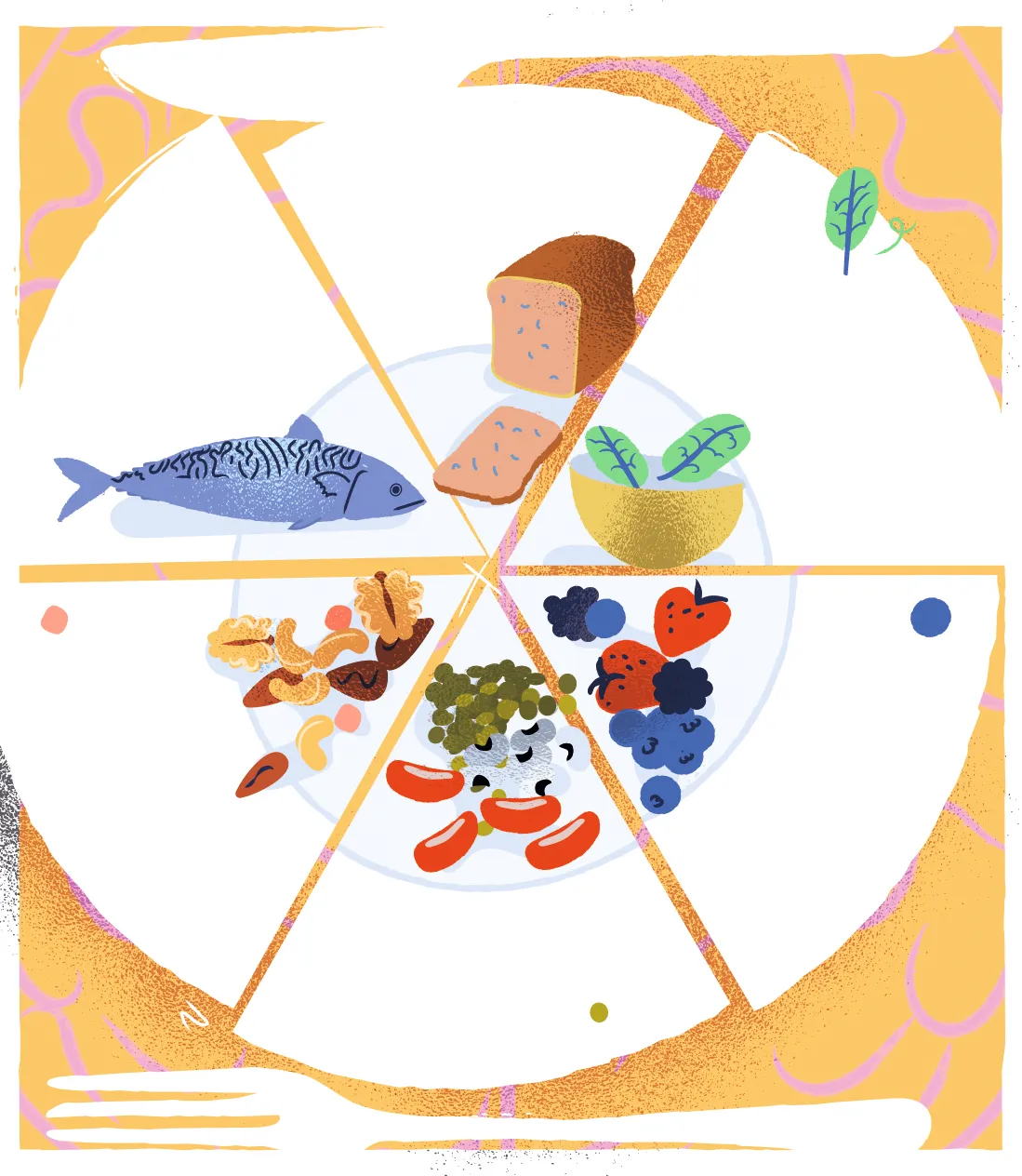Your brain is hungry. In fact, it is the hungriest organ in your body. Despite making up only around 2 per cent of your overall body weight, your brain consumes about 20 per cent of your body’s total energy requirement. But it is a mistake to think that it’s only energy that the brain needs to function well; a full complement of micronutrients in sufficient quantities are essential for a healthy brain.
Evidence is growing that deficiencies in these nutrients contribute to poor brain and mental health. Moreover, there is not a single point in the lifespan, from conception to old age, where nutrition doesn’t play an important role in brain structure and mental health.
For example, we know that it is important for women trying to conceive to take folic acid (a B vitamin) to prevent neural tube defects conditions such as spina bifida. Of course, it’s not just folic acid that the developing brain needs. The essential omega-3 fatty acids form the structural building blocks of brain cell membranes.
One of these fats, DHA, makes up between 10 and 20 per cent of the brain’s total fatty acid content. DHA promotes healthy neuronal morphology and cell signalling, allowing brain cells to communicate efficiently. During pregnancy, accumulation of DHA in the brain and retina is necessary for proper brain development and visual function.
The body is unable to synthesise adequate amounts of DHA, so it must come from the diet. Fortunately, it is abundant in seafood and oily fish such as sardines, mackerel, salmon and trout, and one 140g serving of mackerel supplies enough omega-3 for a week.
Consequently, greater maternal seafood consumption during pregnancy is associated with improved brain development and cognitive function in children, including better scores on assessments of verbal intelligence and fine motor control. Lower blood levels of omega-3 in children are connected to poorer behaviour, worse verbal learning and poorer reading skills.
Read more about brain health:
- A neuroscientist explains how your genes affect your mental health
- The 6 best habits to keep your brain fit, according to neuroscience
- Instant Genius Podcast: Eating for your brain, with Kimberley Wilson
In adults, higher blood levels of DHA are associated with reduced risk of dementia, which is the leading cause of death in the UK. Mild cognitive impairment (MCI) is the age-related decline in cognitive function that can be a precursor to Alzheimer’s disease, the dominant form of dementia.
A randomised controlled trial of elderly individuals with MCI found that supplementation with B vitamins combined with high blood levels of omega-3s resulted in a 40 per cent slower rate of neuronal atrophy.
The protective effect of omega-3 intake on neurodegeneration is good news, but the bad news is that fish consumption in the UK is below recommended levels. Fewer than 5 per cent of UK children are consuming adequate amounts of oily fish.
Polyphenols are another class of nutrient with profound beneficial effects on brain function. Polyphenol-rich foods include tea, coffee, dark chocolate, berries, herbs, spices and wine. In placebo-controlled trials, polyphenol-rich foods increased brain blood flow and enhanced performance on tests of attention, memory and processing speed.
There is even good evidence that improved nutrition can support emotional wellbeing. A landmark Australian study showed that increasing fresh fruits, veg, wholegrains and oily fish in the diet reduced depression severity.
But what about foods to avoid? There seems to be no good news about sugar-sweetened beverages. In healthy young men these drinks rapidly increase markers of inflammation. In animal studies they seem to impair hippocampal function, which has negative effects on learning and memory.
Human studies have shown that the typical Western diet can have negative effects on the brain within a week. So we should try to think of sweets, refined cereals, fried food, fast food, processed meats and sugary drinks as ‘extras’ or ‘fun foods’ and limit their consumption.
In conclusion, your brain is hungry and not only can you feed it, for the sake of children’s brain development and adult mental health, it is imperative that you do.
Best brain foods

Try to eat these every week to keep your grey matter healthy.
Raw unsalted nuts
One serving per day
Oily fish
At least one 140g serving per week
Wholegrains
Five to six servings per day
Legumes
Three to four servings per week
Berries (fresh or frozen)
Half a cup at least three times per week
Leafy green vegetables
A small salad bowl daily
- This article first appeared inissue 370ofBBC Science Focus Magazine–find out how to subscribe here
Read more about the brain:
